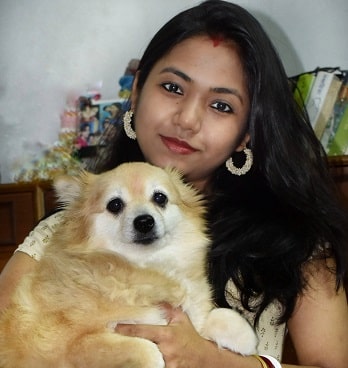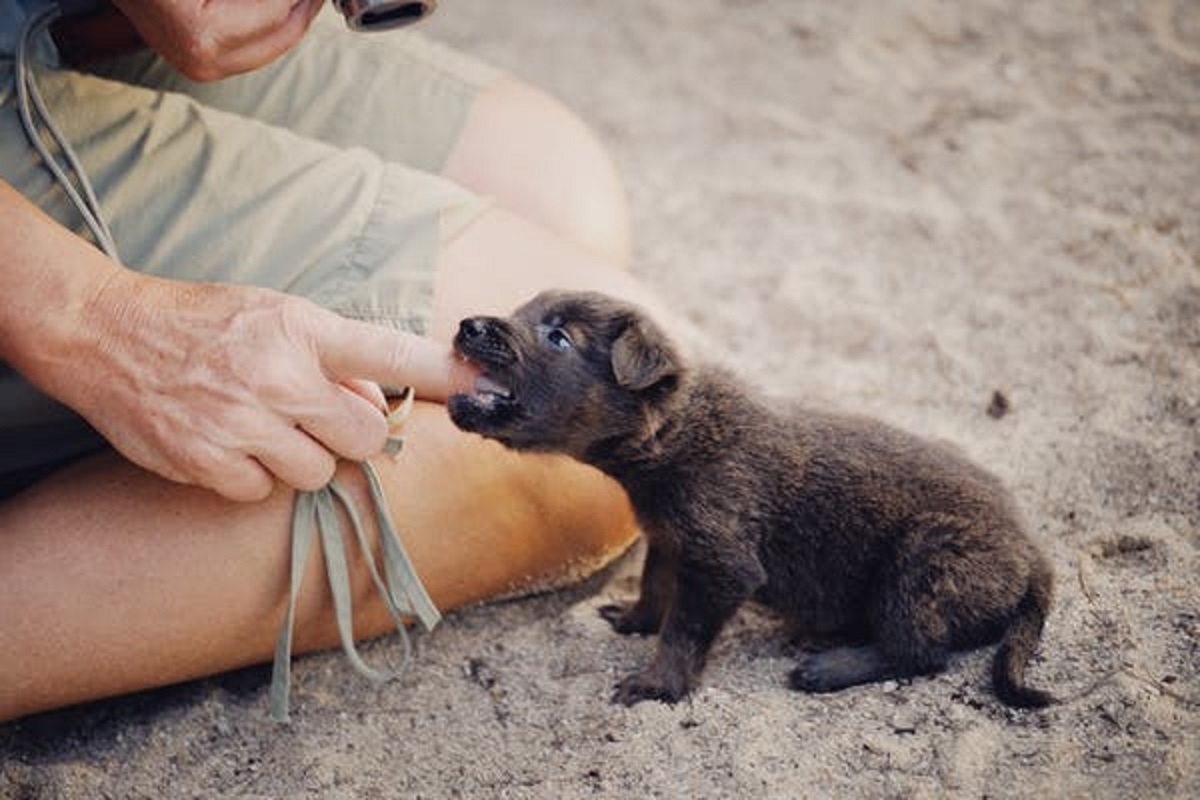Perhaps, you bring home a new puppy. If so, the first thing that comes to mind is training. Of course, the most important one is how to train your puppy not to bite.
If you want your puppy not to bite, you’ll need to be diligent in training him. Unfortunately, most dog owners don’t know how to do this.
You may think that just because your pup is a pup, he should be easy to train.
Wrong!
A good starting point is understanding the difference between biting and licking.
Bite – when a dog bites somebody else – is considered an attack, and you must train then.
Licking – when a dog licks somebody else. Then it is a pet behavior issue.
In that case, you should provide them with dog behavior training.
Suppose you can understand the difference between these behaviors. In that case, it will be much easier for you to train your pup not to bite.
How to Train Your Puppy Not to Bite?
Puppies love to play, and biting is often a common occurrence during play. Therefore, teaching your puppy not to bite is essential.
As this behavior can lead to problems down the road if left unchecked.
You’ll need to be consistent with your commands and provide positive reinforcement to train your puppy not to bite.
One way to discourage biting is by using a loud noise such as a clap or snap of your fingers. When your puppy bites, say “No” in a firm voice and immediately make a loud noise.
You must provide immediate feedback. So the puppy knows that biting is not acceptable behavior.
If you wait too long to respond, the puppy will not understand what it is they did wrong.
Another way to stop biting is by providing plenty of toys for your puppy to chew on.
Talk to Your Puppy About Bites
If your puppy bites you, it’s important to remain calm and positive. Yelling or punishing your puppy will make them more anxious and likely to bite again.
Here are a few tips on how to talk to your puppy about bites:
- Avoid making a big deal out of the bite. Reacting negatively will only reinforce the bad behavior.
- Calmly and gently remove yourself from the situation. Puppies often bite when they’re feeling overwhelmed or anxious. So by removing yourself, you’re teaching them that this behavior is unacceptable.
- Try to stay upbeat when interacting with your puppy. This will help them feel more comfortable and less likely to bite.
- Offer a treat each time the puppy stops biting. This will reinforce good behavior. But not encourage bad behavior.
- If your puppy is bored or tired, take them for a short walk. This will make them tired so that they won’t bite.
How to Prevent Dog Bites?
First, determine whether your dog is biting. It may just be a phase if your dog isn’t biting anyone.
However, if your dog has bitten someone in the past, you can do a few things to help prevent future bites.
First and foremost, make sure that you have a strong case of warning signs:
- Your dog constantly licks its lips or mouth when feeling excited or threatened.
- Your dog barks excessively.
- Your dog has bitten someone before.
- Your dog starts showing interest in human beings for the first time.
Once you see these signals, your dog will hesitate about biting again.
One great way to do this is using a collar with remote control. That dispenses treats as your pup bites.
You also can try using electronic training devices like clickers or shock collars. Finally, always keep an eye on your pet.
See a behaviorist or trainer solve any biting concerns if any actions appear out of place.
How to Stop Dog Bites?
According to the Centers for Disease Control and Prevention, more than 4.5 million Americans are bitten by dogs yearly. Of those bitten, nearly 1 million require medical attention.
In addition, Some breeds are more likely to bite than others. Therefore, it’s essential to know how to avoid dog bites, whether you’re a dog owner or not.
However, there are many things you can do to prevent dog bites. For starters, always be cautious when approaching an unfamiliar dog.
If the dog is tied up and behind a fence, do not attempt to touch it. Instead, wait until the owner arrives. When meeting a new dog, let it come to you first.
Don’t make sudden movements or try to touch its head or back. These signs can lead to a bite.
How to Treat Dog Bites?
If a dog bites you, the first thing to do is to clean the wound with soap and water. Next, apply pressure to the damage with a clean cloth to stop the bleeding.
If the bite is severe, seek medical attention. If it’s a minor wound, you can treat it at home.
Also, take an over-the-counter pain reliever if you’re in pain. If the bite becomes infected, see your doctor.
How to Prevent Dog Bite Victims?
According to the Centers for Disease Control and Prevention, approximately 1,000 Americans need emergency treatment for dog bites daily. Of those, half are children.
To prevent yourself or your loved ones from becoming a victim of a dog bite, follow these tips:
• Always be aware of your surroundings when you’re around dogs. Don’t approach an unfamiliar dog. Always ask the owner for permission before petting a dog.
• If a dog is behaving aggressively or growling, don’t scream or run away. Stand still like a tree and avoid making eye contact with the dog.
• If you are bitten by a dog, clean the wound with soap and water and seek medical attention immediately. If a dog bites you, report the incident to your local animal control agency or police department.
However, most dogs bite when they feel threatened or cornered. But most attacks are preventable.
You can prevent dog bites with proper supervision and instruction on interacting safely with a dog.
How to Get Help If You Get a Dog Bite?
Suppose you find yourself in a situation where you think a dog may have bitten you. Then you should take several steps to protect yourself and your loved ones.
You can call the emergency service number in your area.
1) This number offers free helpline service for anyone who experiences a biting issue from another person or animal.
2) Call the police or sheriff’s office. Law enforcement can help if you’re bitten without intention.
If you think anything was wrong or an unjustified attack. Then alert authorities so they can examine it fairly.
3)Bring along documentation of the bite. This could include photographs, videos, or electronic records. This type of evidence can later be used in court if needed.
Conclusion
In conclusion, following these simple tips can help you train your puppy not to bite. Remember to be consistent with your commands.
As a result, positive reinforcement will go a long way. Soon, you’ll have a happy, well-behaved pup.
Also, they will know how to play without politely sinking their teeth into your skin!
I hope now you have some ideas on how to train your puppy not to bite. If so, share your experience in the comment box below.

Tina, an enthusiastic and determined individual with a passion for the well-being of animals. After growing up with a strong emotional connection to her beloved dog, she decided to share her experince through her writing.


